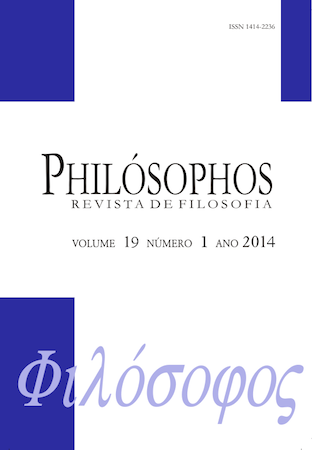THE STATE OF EXCEPTION AND THE ORIGINAL STRUCTURE OF SOVEREIGNTY IN GIORGIO AGAMBEN
DOI:
https://doi.org/10.5216/phi.v19i1.28253Keywords:
Field. Sovereignty. State of Exception. Power-of-LawAbstract
Based on the categorical connection between the field and the state of exception, I propose to discuss on this article Giorgio Agamben’s conception of the state of exception in its paradoxical relationship with the law, a relationship which is proper to the paradoxical structure of sovereignty. The field is to the Italian thinker the experience which is able to clarify the paradoxical dimension of the state of exception because it expresses itself at the same time as inside and outside the legal system. On the contemporary experience the state of exception is no longer characterized as an exceptional experience, but it has become the norm. Based on this, we want to present the dialog between Agamben and Carl Schmitt, in order to reflect on the condition of the state of exception to present itself as anomy, whilst continuing to establish with the law a necessary relationship, even in the form of suspension.
Downloads
Downloads
Published
How to Cite
Issue
Section
License
Authors who publish in this journal agree to the following terms:
- Authors retain copyright and grant the journal right of first publication, with the work simultaneously licensed under a Creative Commons Attribution License that allows others to share the work with an acknowledgement of the work's authorship and initial publication in this journal.
- Authors are authorized to enter into separate, additional contractual arrangements for the non-exclusive distribution of the journal's published version of the work (e.g., publishing in an institutional repository or as a book chapter), with an acknowledgement of its authorship and initial publication in this journal.















